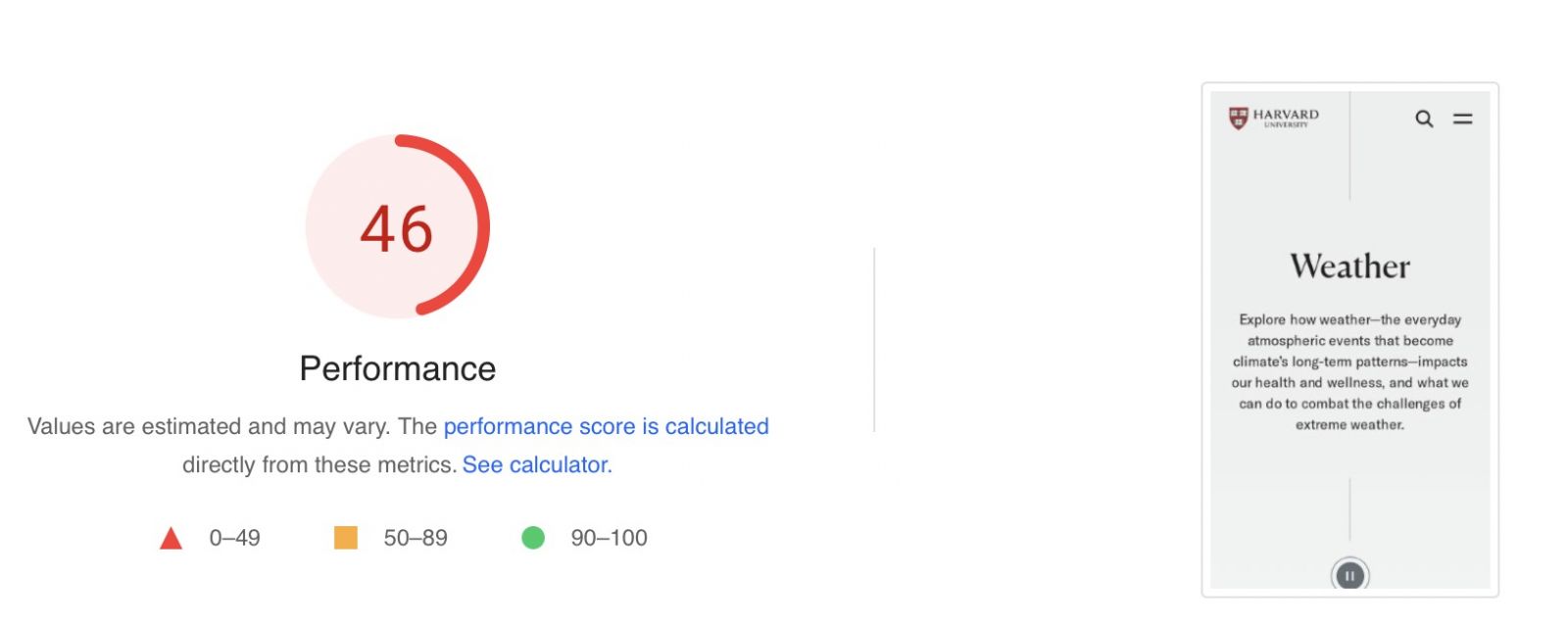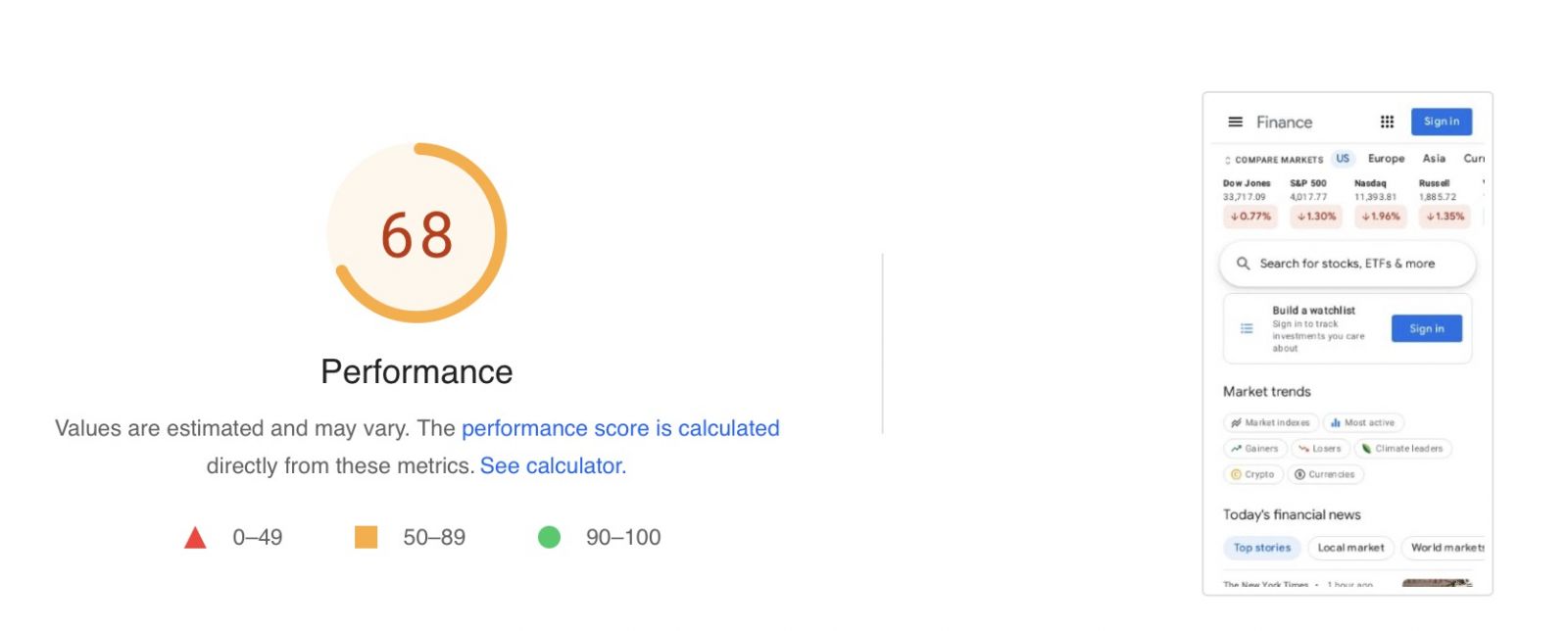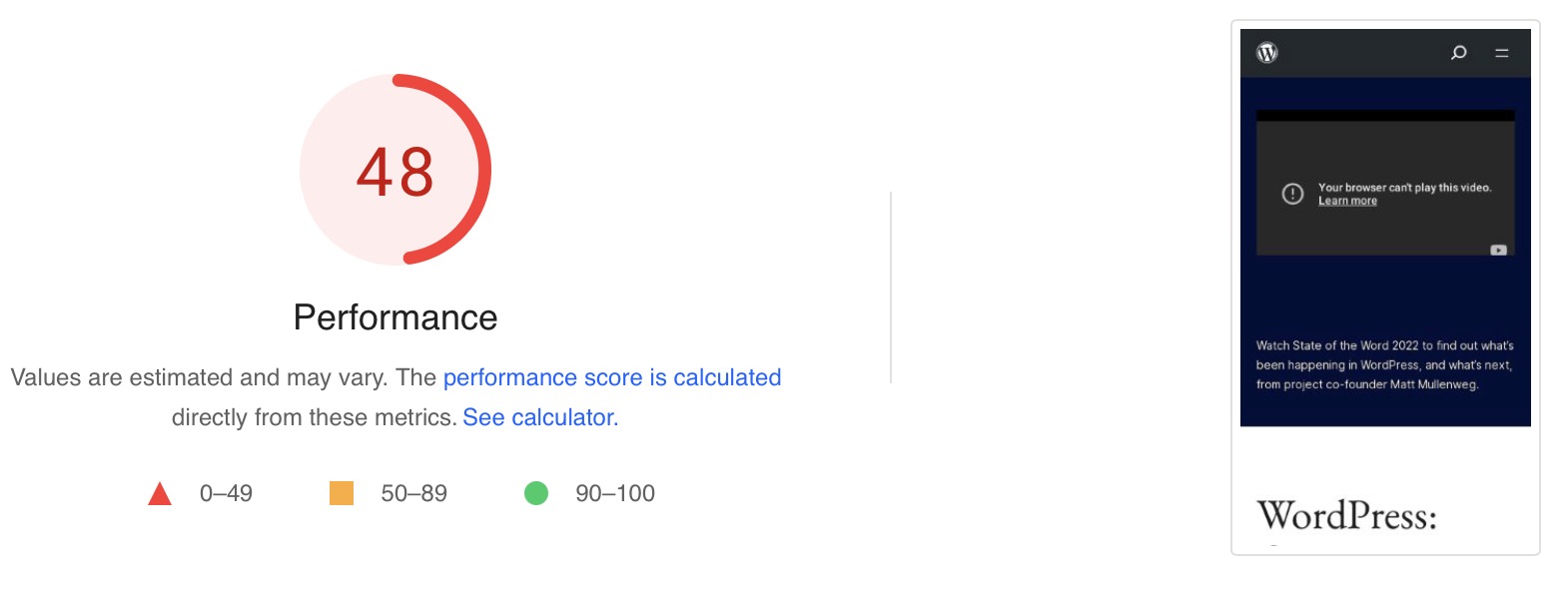I could’ve alternatively titled this post “PageSpeed Insights: The Worst ROI of all SEO Techniques,” or “PageSpeed Insights: The Number One Cause of Wasted Development Time,” or “PageSpeed Insights: Put It Last On Your List.” In honesty, all those titles work and quickly explain what I believe to be the truth with regard to PageSpeed Insights, or at least, what Google interprets “page speed” to mean.
If you are too tired or bored already or uninterested and read no more, at least read this: Don't obsess over your PageSpeed Insights score because for the vast majority of websites, achieving a high score is a waste of time and resources that can best be invested elsewhere.
Intrigued? Please, continue with me.
Now – I must admit up front – I’m a recovering page speed addict. Two years ago, when it was announced that it would be considered a ranking factor – I was all in. I had my team go crazy refactoring our website to meet the highest score possible on the Google test tool. We were able to achieve mid to high 90s on both mobile and desktop. I then licensed a CDN and a firewall to get the speeds to 100/100 – a perfect score!
In the meantime, algorithm changes meant my SEO dropped anyway, and the time sunk into this could’ve been used in much better places. The CDN made all our content changes a caching nightmare. We saw literally zero return on our investment.
Based on that experience and many others, at this point, we offer customers the option to pursue “Strict Core Web Vitals” compliance on each proposal. Yes, it is an option. This is because it takes us time, and there is a risk in trying to accomplish it that we’ll spend way too much time for uncertain results, thus jeopardizing the project's profitability. The client needs to know this is a premium item, so we package it that way.
However, I almost always convince them not to pursue it.
The primary reason is that it just doesn’t seem to be justifiable from an expense perspective when you weigh the potential upside. But more on that in a minute because I have a flurry of other thoughts and points to make about why one shouldn’t obsess over this particular ranking factor
Let’s dig into them now…
It’s Not Really About User Experience
I think the biggest misconception is about the difference between page speed and “PageSpeed Insights.” While no one knows for sure what's going on under the hood at Google, we do know that there's been a history of their advancement of certain initiatives for reasons other than they may seem. Suppose you were running a search engine crawling billions of pages simultaneously. What would be one way you can start utilizing fewer resources or utilize those resources more efficiently? Yeah, you guessed it, by making the crawl targets load faster.
I believe that Google is keen on ensuring that site visitors are given a good experience when they click through their search rankings - as they should be. However, sites can load very quickly for end users and still receive awful page speed scores from the Google tool. This is a disconnect that I have trouble wrapping my head around. I think it's logical and fair that users should have a great experience loading a website. But I know for sure I can load sites that score 100, 80, and 60 for a normal web user, and they would not be able to tell the difference in speed.
So the first misconception that must be understood is this: the page speed metric you're chasing does not affect the user experience in a perceivable way unless the site has some major flaw and takes more than four seconds to load.
It's One of Hundreds of Ranking Factors
Recently news came out that a sophisticated Russian search engine named Yandex had its ranking algorithm leaked. That algorithm contained over 2000 different ranking factors. No one knows the Google algorithm, but people theorize that it's probably somewhat similar. With over 2000 ranking factors in place, how important is achieving a perfect score from a page speed perspective?
If one were to do a detailed analysis of ranking factors, page speed would not even be in the top 10. Historically, Google has always focused on relevance and authority as determined by factors such as backlinks. The Stanford thesis written by Larry Page and Sergey Brin featured a sophisticated algorithm that assigned a value to a page based on the value of the sites that were linking to it. I still believe this is the most important factor from a common sense perspective. Everything else is secondary.
Site owners would do better to get a backlink or two from places like the New York Times or Harvard University, or some other beacon of credibility on the Internet. That would instantly do more for their rankings than any page speed metric. And honestly, it might be cheaper to accomplish.
So yes, this web developer is telling you to hire a PR firm before you pay me to make your PageSpeed Insights score higher. There – I’ve said it!
You’ll Get the Lowest ROI Given the Effort Put Into It
If common sense dictates that page speed is not one of the most important ranking factors, then, therefore, it stands to reason that it doesn't have as much value as people think. Yet, I've seen customers sink tens of thousands of dollars trying to gain as much as they can in the Google PageSpeed Insights tool.
However, I've never seen a client move the needle significantly regarding SEO based on page speed alone. And I haven't had that result myself. If a client came to me and asked me about five different investments they could make in their website to increase engagement, traffic, or increase conversions, I would never recommend looking at page speed first unless the site was loading so slowly that it was visible to the naked eye. As I said earlier, I mean more than four seconds. These days, for the most part, we don't see a lot of sites coming to us that are taking thirty seconds to load.
It is Easily Derailed By Third Parties – What’s More Valuable: Tracking or Speed?
One of the craziest things about page speed is that, sadly, so much of it is derailed by all the fancy third-party plugins and tags that webmasters add to their sites. Those A/B testing tools, analytics plugins, sharing platforms, conversion tracking, and marketing automation stacks can wreak havoc on page speed. One of the first things we do when a client wants to test page speed is install a variable that will allow us to load a page with zero tags just to illustrate the page speed difference between when all tags are loading and when they're not. This typically has a major effect on scores.
Now, of course, tag management platforms, including Google’s own, have a bunch of tools that you can use or techniques that you can employ to delay loading or embed tags on the server side. However, they never seem to work perfectly, and we've seen clients have more of a negative impact from their data and usage not being tracked correctly than we ever have from page speed being delayed.
The Best Ranked Sites Don’t Comply
I think the craziest thing about page speed is that when you look at some of the sites that are best known in the world for their search engine optimization, they don't always perform well. Check out the images below; you can see the New York Times, Harvard University, and the White House results. Spoiler alert: none of them perform well. It's absurdly shocking how bad they are. Yet these same sites Rank in the top ten for 10s of thousands of terms. So clearly, there's more to SEO ranking than just how fast pages are loading.



Further proof of craziness… Companies owned by Google don’t always score well, either. Check out this score from Google Finance as an example:

Your Platform Probably Can’t Handle It Anyway
Here's a bit of truth that you'll probably not want to hear, but I'll tell you anyway. It's nearly impossible for any of the most popular CMS platforms, with just a few exceptions, to rank well off the shelf.
Let's look at WordPress as an example because that's all that everybody wants to discuss. Even if you were to custom build a WordPress theme with minimal plugins and full caching installed on the best dedicated instances… the site still probably will not pass the Google page speed test without significant modification. That's just the nature of the platform. In fact, WordPress and Acquia themselves can't pass:


The same applies to hosted CMS platforms such as HubSpot or Squarespace. Those systems are notorious for bad performance. Neither of those sites complies either.
The platforms that seem easiest to achieve compliance require a heavy development lift. For example, if you were to employ a headless CMS and a static site generator, you'd have a good chance of achieving some level of compliance. However, the second you add marketing tags to the site, you'll almost assuredly lose it.
While headless CMS is cool and performs well, they're awful for marketers who rely on development teams to do everything for them on the front end. So, what would you rather have? An easily editable site or something that passes the PageSpeed metric?
It’s Hard to Maintain Over Time
Another thing I've noticed is that even if we can achieve a high score, eventually, someone's not paying attention and installs a new tag and tag manager or uploads a poorly optimized image, or does any other number of things to throw off the works and lower the performance of the site.
Another thing of interest is that even if you achieve a high score with third-party tags, those tags are changing without you even knowing it, meaning that the vendors can be injecting any number of things that can also affect your rankings.
My point here is that obsessing over page speed becomes an ongoing thing, which just frustrates everybody on the team, and to what end?
It Takes Focus From Other More Important Things
We had a client who ultimately ended up leaving the agency because they were so obsessed with page speed. At the same time, they had an accessibility overlay on their site to try to sugarcoat that they're not ADA-compliant. They would have been better served to address the ADA problem, natively meeting WCAG guidelines, which would have had a greater impact on their business than working on page speed. I think this is a pretty outrageous example because many users require some level of assistance when using digital devices. For example, how many people do you know over 50 using their cell phone's built-in zoom or text enlargement feature?
In this example, failing to comply is leaving the company at risk for a lawsuit known to happen from time to time – but I digress.
My point here is that I can almost guarantee you that there are 15 other things you should be looking at first that will move the needle before you go down the rabbit hole of chasing page speed perfection. Things that metrics can quantify or be visible to the naked eye.
A Healthy Approach to Page Speed
A healthy approach to page speed would be to be aware of the issue and put a limited amount of work into it, within reason.
Let me explain how I would pursue this through a couple of hypothetical situations. First, let's assume your website is already a few years old. In this case, it's highly unlikely you'll ever be able to achieve a perfect score. You may be able to do that with a third-party caching tool, which would probably be inconvenient from a content management perspective. Short of that, you're most likely looking at a major expense to refactor your code and a review of your hosting or architecture situation to achieve a high score. In this case, we would recommend to a customer that they assign a budget they are willing to invest, understanding that it may or may not result in dramatic changes to the test results. The budget will be different depending upon the organization, obviously. However, it is likely that you would see some results, even if they are minor. This would be a responsible way to approach the problem, and when completed, you can reevaluate and continue or stop the initiative.
Scenario number two is if you're looking to do a complete rebuild. This is always the best time to address this problem. But you must understand that you may need to consider other platforms to achieve this level of performance. As I said, if speed and performance are your number one most important feature, then platforms like WordPress, Drupal, Sitecore, and Adobe Experience Manager are not for you. This will most likely result in a debate about how important page speed is. I have not yet seen a customer who said this was the number one feature they are concerned about.
In Wrapping Up
I tried for a while to think of an analogy for page speed (or chasing PageSpeed Insights scores) that works, and the best I can come up with is a person’s weight. Some of us want to weigh just a bit less. Some (I included!) obsess at times. I worry that being slightly overweight will affect my health negatively. I’d wager to guess that it's probably not a big deal if I’m three or four pounds over my ideal weight. After all, many other “ranking factors” determine my health. It’s like listening to a friend who can deadlift 300 pounds and then smokes a cigar… Or a marathon runner who doesn’t wear a seatbelt.
PageSpeed scores are the same thing. Yes, it's desirable to have a low score. But is it a showstopper? I doubt it. Could it be a tiebreaker if two sites are tied in all other areas? Perhaps. But either way – it isn’t worth stressing about or massively investing in. Unless you just want to tell people that you scored a perfect 100… Which may be the only actual, concrete reason to pursue it.


